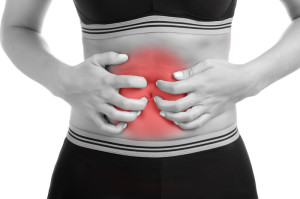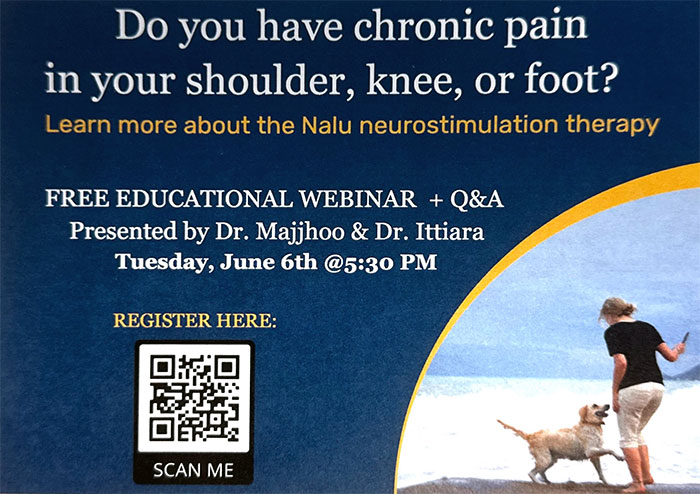FAQs on Abdominal Pain
What is Abdominal Pain?
Abdominal pain, sometimes referred to as a stomachache, can be just one of the symptoms associated with a serious condition, disease or transient disorder. A definitive diagnosis of abdominal pain causes can be challenging, primarily because many diseases and conditions can result in this symptom.
In 2011-2012, surveys taken from emergency rooms across the country reported that visits for abdominal pain were steadily increasing. The National Center for Health Statistics showed that over the previous decade the number of non-injury related visits to the emergency room for abdominal pain increased 32%.
The most recent survey results showed that the number continued to increase as more and more patients arrived at the emergency room for treatment of abdominal pain. The Centers for Disease Control and Prevention surveyed 350 emergency room departments over a span of ten years in order to retrieve the statistics presented in the results.
While pain in the abdomen is a common issue, it is often benign and self-limited, although some cases require immediate care, intervention and treatment. When a physician examines a patient to determine the cause and treatment plan for abdominal pain the patient’s medical history of the current complaint and physical examination should formulate a diagnosis in over 90 percent of all cases.
What are the Common Causes of Abdominal Pain?
At some point, nearly everybody will experience abdominal pain. Most causes are not serious, however others may require medical attention that goes beyond home or outpatient care. Severe and persistent pain may be the sign of a serious illness or condition. It is important to be able to recognize symptoms of abdominal pain that are out of the ordinary.
serious, however others may require medical attention that goes beyond home or outpatient care. Severe and persistent pain may be the sign of a serious illness or condition. It is important to be able to recognize symptoms of abdominal pain that are out of the ordinary.
Whether a person experiences a mild stomachache, sharp pain or cramp, abdominal pain has various causes. Some of the most common causes include:
- Indigestion
- Constipation
- Menstrual cramping
- Stomach flu
- Food poisoning
- Gas
- Lactose intolerance
Gallstones and kidney stones are also becoming more and more common in patients with abdominal pain. According to the National Institute of Diabetes and Digestive and Kidney Diseases over 40 million people in the U.S. (that is about 14 percent of the population) have gallstones.
have gallstones.
Many of these people are unaware that they have the condition; however, many experience abdominal pain at some point in their lives. Each year within the United States, approximately one million new cases of gallstones are diagnosed. Due to the nation’s obesity epidemic, this number continues to rise year after year.
Additional causes of abdominal pain are reproductive issues, Crohn’s disease and ectopic pregnancies. Pelvic inflammatory disease and gallstones may also lead to chronic and acute pain in the abdomen (Bardiau et al., J Clin Anesth, 2009).
What is Acute Abdominal Pain?
This condition can be described as severe, persistent pain in the abdomen that occurs with sudden onset. This kind of abdominal pain may require surgical intervention in order to treat the cause. The pain may frequently occur and be associated with other symptoms such as nausea, vomiting, fever, signs of shock, and abdominal distention. Acute appendicitis is one of the most common causes of pain in this region.
Selected causes of acute abdomen are broken into three categories:
- Traumatic
- Inflammatory
- Mechanical
Traumatic pain of this kind is caused by blunt or perforating trauma to the stomach, spleen, liver, kidney or bowel. The condition may be caused by trauma brought on by a motor vehicle accident, sports injury or other type of abrupt impact with the abdomen.  Inflammatory acute abdomen is generally caused by an infection such as appendicitis, hepatitis, pelvic inflammatory disease, pancreatitis or cholecystitis. Other problems that may lead to inflammatory pain that is acute in nature, which may include perforation of a peptic ulcer or complications of inflammatory bowel disease such as ulcerative colitis or Crohn’s disease.
Inflammatory acute abdomen is generally caused by an infection such as appendicitis, hepatitis, pelvic inflammatory disease, pancreatitis or cholecystitis. Other problems that may lead to inflammatory pain that is acute in nature, which may include perforation of a peptic ulcer or complications of inflammatory bowel disease such as ulcerative colitis or Crohn’s disease.
Mechanical causes of acute abdomen may be brought on by bowel obstructions or vascular conditions. Small bowel obstructions secondary to adhesions caused by surgeries are somewhat common, as are large bowel obstructions caused by colorectal cancers, fecal impaction, hernias and other conditions associated with this area of the body. Occlusive intestinal ischemia, which is generally caused by thromboembolism of the superior mesenteric artery, may also result in acute abdomen.
What are the causes of chronic abdominal pain?
If your abdominal pain is severe and chronic it is important to be looked at by a NIPM specialist to receive options for relief.
Many females deal with the pain alone rather than receiving help. If the chronic pain is affecting activities on a daily basis such as interference with work, sex life, concentration, then help is available.
Chronic abdominal pain may come from reproductive issues such as endometriosis or PID. Gallstones may cause chronic pain as well along with post-surgical scar tissue. Crohn’s Disease or inflammatory bowel disease (IBD) may flare up chronically.
Pancreatitis creates abdominal pain that often recurs and sticks around for months at a time. Infrequently, an upper abdominal cancer may cause pain.
Treatment options for chronic abdominal pain include:
- Pain Medications – NSAIDS, Tylenol, Opiates
- Disease medications – this may include something like sulfasalazine for IBD
- Injections – a Celiac Plexus Block relieves pain for two to four months in three fourths of patients along with reducing the amount of opiates necessary for pain relief (Rykowski et al, Anesthesiology 2000). It has been shown to work well for IBD, upper abdominal cancer and pancreatitis.
- Acupuncture


